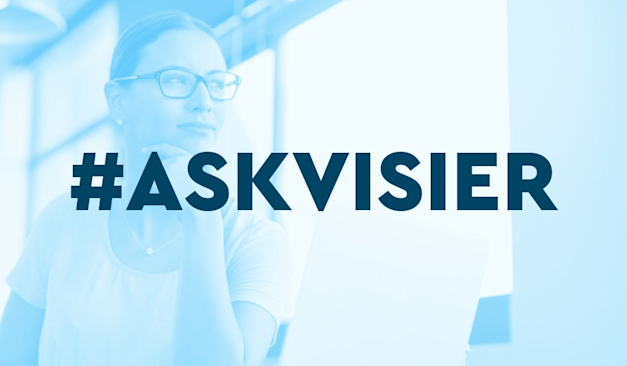
4 HR Metrics To Monitor During an Economic Recession
As HR and Finance leaders partner to strategically plan for an economic recession, here are four HR metrics they should use to inform business decisions.
Latest articles

15 Strategic Workforce Planning Questions Vee Can Answer Fast
Visier's genAI assistant, Vee, answers strategic workforce planning questions in seconds. Here are 15 real examples of answers from Vee.

Introducing Vee Boards, The AI Concierge Analyst for C-Suite Executives
Vee Boards are AI-augmented insight boards tailored to specific issues of the highest priority to the C-suite. Learn more about Vee Boards here.

Employee Data Management: Benefits, Roles, and Process
Employee data management involves collecting, organizing, and storing employee information for strategic purposes. Read on to learn more.

3 Ways To Manage Costs and Improve Workforce Planning in the Manufacturing Industry
The manufacturing industry faces uncertainty and a need to innovate. Learn how to use workforce planning to drive investment, skills, and productivity.

Perspectives on Workforce Analytics: The AI Edge for the HR Business Partner
Discover how AI and advanced analytics can elevate the HRBP role. Learn actionable steps HRBPs can take to become strategic business advisors in the AI era. Read more.

Gender Wage Gap Persists in 2025, Visier Customers Outperform
The gender wage gap persisted in 2024, but new research shows that customers who use workforce data insights are more successful at narrowing it. Read more.
Product & Innovation
Explore the latest in products, the industry, and solutions that bring business data and people data together.

Introducing Vee Boards, The AI Concierge Analyst for C-Suite Executives

Announcing the Latest Vee Enhancements: Any Question, Any User, Anywhere

Key Takeaways from Outsmart Local London: 'Own Your People Data Strategy'

The 5 Steps of Analytics-Driven Workforce Planning
All Product & Innovation articlesArtificial Intelligence
We’ve only just begun to scratch the surface of how Artificial Intelligence will change work as we know it.

15 Strategic Workforce Planning Questions Vee Can Answer Fast

Introducing Vee Boards, The AI Concierge Analyst for C-Suite Executives

4 Strategic Ways Generative AI Bridges the Gap Between HR and Business Productivity

The 3 Essential Roles for Deploying AI Agents Successfully
All AI articles


